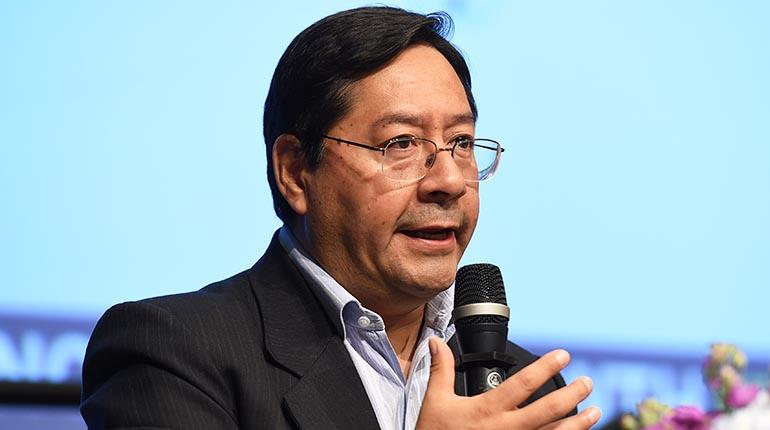RIO DE JANEIRO, BRAZIL – On April 21, Bolivia’s president, Luis Arce, enacted the Law of Declaration of the Decade of Indigenous Languages, paired with the United Nations proclamation for 2022-2032, seeking to conserve and promote native languages.
The presidential sanction took place at the Government House in La Paz with the attendance of the representative of the United Nations Organization (UN) in the country, Susana Sottoli, and several government ministers such as Chancellor Rogelio Mayta.
In his speech, the Bolivian president assured that the norm seeks to “preserve the indigenous languages” of the country, which are 36 declared as official languages in the Constitution, and together with that “that concrete actions are carried out” for their conservation and transmission.

Arce mentioned that one of the main tasks encouraged by the law is “to return to the communities the responsibility for the intergenerational transmission of the languages and their unrestricted use in all possible spheres and scenarios”.
It also includes establishing “new modes of linguistic action of the State” so that officials and citizens “stop communicating exclusively in Spanish,” he emphasized.
The president highlighted the importance of indigenous languages in the framework of cultural identification noted by the 2012 Population and Housing Census, which established that 41% of those over 15 years of age belong to an indigenous people or nation.
Previously, the Bolivian Foreign Minister recalled Bolivia’s action for 2019 to be declared the International Year of Indigenous Languages, something he said “was insufficient” and therefore stressed that it was achieved to achieve the declaration of a decade that serves for “action and reflection” on the care of native languages.
“The preservation, promotion, and protection of indigenous languages are essential actions for sustainable development, social inclusion, cultural diversity, and the heritage of a nation,” said the UN representative during her speech.
Sottoli stressed that Bolivia “went ahead” with the enactment of the law to the inauguration of the Decade of Indigenous Languages that will be held at the UN headquarters this Friday and that the plan for the preservation of indigenous languages “will be highly favored by this legislation”.
According to the data provided by the representative, indigenous peoples represent 6.2% of the world’s population, some 370 million people in 90 countries, and some 7,000 languages belonging to some 5,000 different cultures are spoken in the world.
The United Nations Educational, Scientific, and Cultural Organization (Unesco) projects that there could be no more than 600 languages left by the end of this century, so urgent action must be taken to protect them.
The role of mothers, grandmothers, and sisters in the communities is fundamental in this task, as they are “key” actors in reproducing and perpetuating a language, said Sottoli.
With information from EFE

